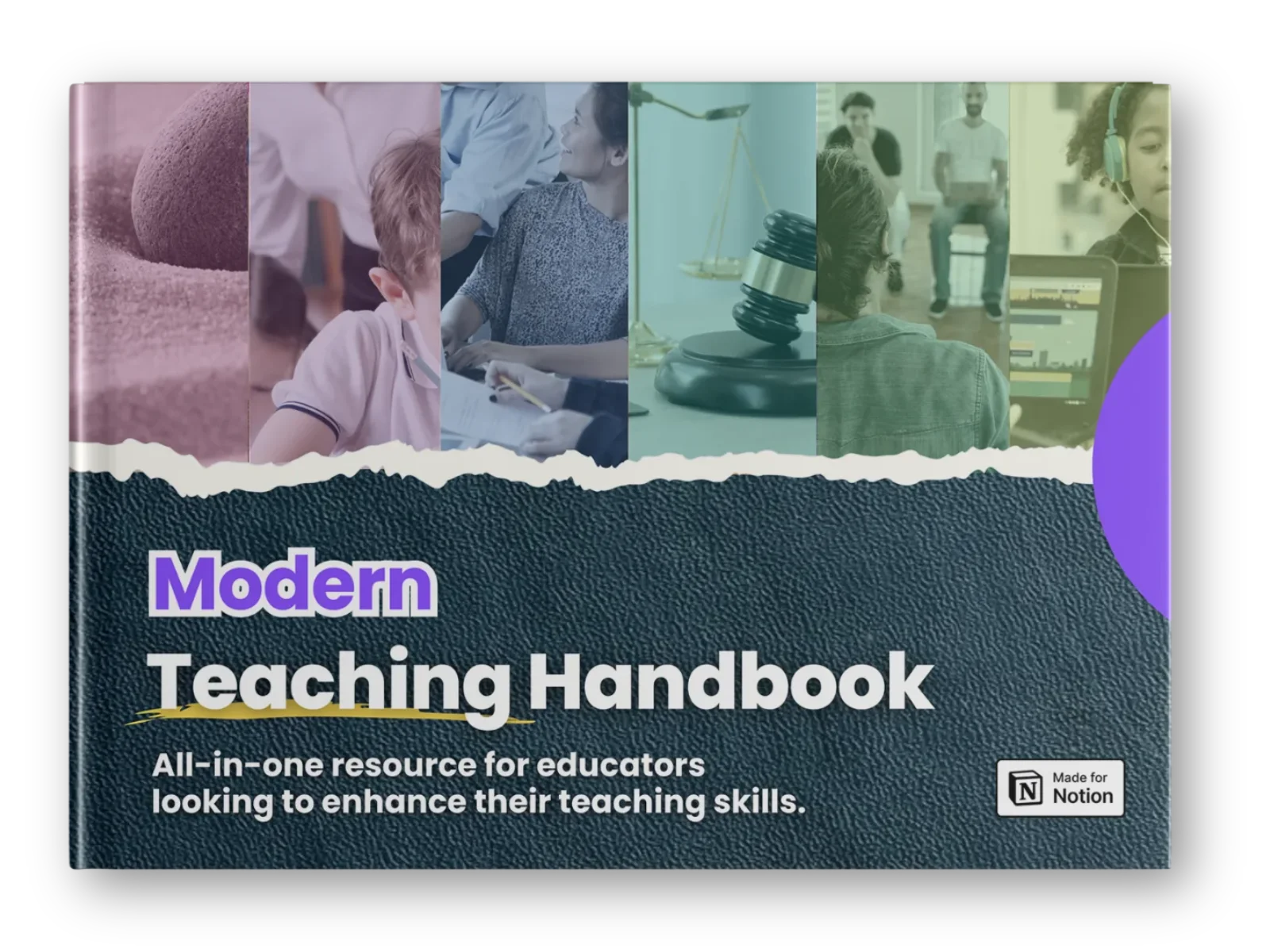

The Role of School Leadership in Improving Education Quality
The Role of School Leadership in Improving Education Quality
The Role of School Leadership in Improving Education Quality


Article by
Milo
ESL Content Coordinator & Educator
ESL Content Coordinator & Educator
All Posts
Education has evolved over centuries, but it remains a work in progress. As society outside the classroom becomes more complex, new challenges continuously emerge for students. Without deliberate, consistent efforts to address these challenges, the education system will stagnate. But who is better suited to initiate these improvements than school leaders? Even when their voices feel stifled by a larger system, these leaders are uniquely positioned to bring about positive change and shape a brighter future for education.
Education has evolved over centuries, but it remains a work in progress. As society outside the classroom becomes more complex, new challenges continuously emerge for students. Without deliberate, consistent efforts to address these challenges, the education system will stagnate. But who is better suited to initiate these improvements than school leaders? Even when their voices feel stifled by a larger system, these leaders are uniquely positioned to bring about positive change and shape a brighter future for education.
Modern Teaching Handbook
Master modern education with the all-in-one resource for educators. Get your free copy now!

Modern Teaching Handbook
Master modern education with the all-in-one resource for educators. Get your free copy now!

Modern Teaching Handbook
Master modern education with the all-in-one resource for educators. Get your free copy now!

Building a Positive School Culture
Education isn’t just about homework, exams, and grades. Students spend a significant portion of their lives in school, and the environment within these walls plays a crucial role in their success. A supportive atmosphere fosters both academic achievement and personal well-being. Even with the best resources and highly qualified teachers, students may struggle to thrive if they feel stressed, anxious, or unmotivated. So, what can school leaders do to cultivate a positive school culture?
Involving Students: Remember that students deserve to have a say in their education. If you treat them like passive subjects, don’t be surprised if they would rather buy research paper than put in their own work. Create more opportunities for them to decide what they want to do. Let them choose class activities, school events, assignments, and other things that offer variety.
Involving Families: Parental involvement shouldn’t be limited to addressing poor grades or behavioral issues. Schools need to provide families with ongoing opportunities to stay informed and actively participate in the educational process. After all, students’ lives extend beyond the classroom. When families and educators work together, students are more likely to maintain a healthy school-life balance, improving both academic performance and well-being.
Open Communication: One of the most overlooked aspects of education is effective communication between students and school leaders. Many educational issues persist because students don’t feel heard. Leaders need to maintain open channels for dialogue, ensuring that students feel comfortable expressing their concerns. Instead of providing one-size-fits-all responses, leaders should listen attentively and offer personalized solutions. Open communication not only helps address academic struggles but also builds a sense of trust within the school community.
A primary responsibility for any administrator is building school culture that supports both student achievement and teacher well-being.

Investing in Professional Development
Effective school leadership is about more than just administrative duties; it’s about fostering growth for both the institution and its staff. Leaders must remain attuned to the evolving needs of their school and adapt accordingly. While traditional approaches have their place, innovation is key to staying relevant. Even in the face of limited budgets, small but strategic decisions can significantly improve the educational environment.
Retention of Staff: School leaders have a profound impact on teacher and staff retention. Hiring the right people is only the beginning—retaining them is equally important. To do this, leaders must cultivate a supportive work environment where collaboration and mutual support are prioritized. Toxicity should be swiftly identified and addressed, while team members should feel heard and valued. Leaders who are willing to meet their staff halfway and provide solutions to their concerns foster loyalty and reduce turnover.
Ongoing Growth: Even teachers with decades of experience need opportunities for continued growth. School leaders play an instrumental role in facilitating professional development, offering resources like workshops, peer collaboration, and mentorship programs. Leaders are also responsible for implementing evaluation systems that provide constructive, actionable feedback. This feedback helps teachers identify areas for improvement, enhancing their teaching methods and ultimately benefiting the students.
Leaders must be skilled at implementing educational change to ensure new policies are adopted smoothly by the entire staff.
Strategic Planning for Educational Success
Strategic planning is a cornerstone of effective school leadership. It involves not only identifying areas in need of improvement but also using available resources to implement meaningful changes. Whether the focus is on raising academic standards, improving teacher qualifications, or strengthening ties with the community, school leaders must always strive for progress.
Addressing Key Issues: Leaders are responsible for spotting challenges and deploying resources to address them. This could involve increasing academic support, enhancing teacher training, or encouraging greater family and community involvement in school initiatives. Effective leaders refuse to settle for the status quo—they are constantly seeking ways to improve their schools and ensure that students have access to the highest quality education possible.
Mastering daily school administration responsibilities allows leaders to focus more energy on long-term strategic goals.
Creating a Ripple Effect in Education
While school leaders may only have direct influence within their own institutions, the impact of their efforts often extends far beyond. Positive changes within one school can inspire and influence others, creating a ripple effect throughout the educational system. This is particularly relevant in times of crisis, such as the disruptions caused by the COVID-19 pandemic. Instead of being paralyzed by the enormity of global challenges, leaders should focus on what they can do locally. Every meaningful change begins with small, determined steps.
Effective leaders understand that stakeholder involvement is crucial for gaining support for school-wide initiatives.
Building a Positive School Culture
Education isn’t just about homework, exams, and grades. Students spend a significant portion of their lives in school, and the environment within these walls plays a crucial role in their success. A supportive atmosphere fosters both academic achievement and personal well-being. Even with the best resources and highly qualified teachers, students may struggle to thrive if they feel stressed, anxious, or unmotivated. So, what can school leaders do to cultivate a positive school culture?
Involving Students: Remember that students deserve to have a say in their education. If you treat them like passive subjects, don’t be surprised if they would rather buy research paper than put in their own work. Create more opportunities for them to decide what they want to do. Let them choose class activities, school events, assignments, and other things that offer variety.
Involving Families: Parental involvement shouldn’t be limited to addressing poor grades or behavioral issues. Schools need to provide families with ongoing opportunities to stay informed and actively participate in the educational process. After all, students’ lives extend beyond the classroom. When families and educators work together, students are more likely to maintain a healthy school-life balance, improving both academic performance and well-being.
Open Communication: One of the most overlooked aspects of education is effective communication between students and school leaders. Many educational issues persist because students don’t feel heard. Leaders need to maintain open channels for dialogue, ensuring that students feel comfortable expressing their concerns. Instead of providing one-size-fits-all responses, leaders should listen attentively and offer personalized solutions. Open communication not only helps address academic struggles but also builds a sense of trust within the school community.
A primary responsibility for any administrator is building school culture that supports both student achievement and teacher well-being.

Investing in Professional Development
Effective school leadership is about more than just administrative duties; it’s about fostering growth for both the institution and its staff. Leaders must remain attuned to the evolving needs of their school and adapt accordingly. While traditional approaches have their place, innovation is key to staying relevant. Even in the face of limited budgets, small but strategic decisions can significantly improve the educational environment.
Retention of Staff: School leaders have a profound impact on teacher and staff retention. Hiring the right people is only the beginning—retaining them is equally important. To do this, leaders must cultivate a supportive work environment where collaboration and mutual support are prioritized. Toxicity should be swiftly identified and addressed, while team members should feel heard and valued. Leaders who are willing to meet their staff halfway and provide solutions to their concerns foster loyalty and reduce turnover.
Ongoing Growth: Even teachers with decades of experience need opportunities for continued growth. School leaders play an instrumental role in facilitating professional development, offering resources like workshops, peer collaboration, and mentorship programs. Leaders are also responsible for implementing evaluation systems that provide constructive, actionable feedback. This feedback helps teachers identify areas for improvement, enhancing their teaching methods and ultimately benefiting the students.
Leaders must be skilled at implementing educational change to ensure new policies are adopted smoothly by the entire staff.
Strategic Planning for Educational Success
Strategic planning is a cornerstone of effective school leadership. It involves not only identifying areas in need of improvement but also using available resources to implement meaningful changes. Whether the focus is on raising academic standards, improving teacher qualifications, or strengthening ties with the community, school leaders must always strive for progress.
Addressing Key Issues: Leaders are responsible for spotting challenges and deploying resources to address them. This could involve increasing academic support, enhancing teacher training, or encouraging greater family and community involvement in school initiatives. Effective leaders refuse to settle for the status quo—they are constantly seeking ways to improve their schools and ensure that students have access to the highest quality education possible.
Mastering daily school administration responsibilities allows leaders to focus more energy on long-term strategic goals.
Creating a Ripple Effect in Education
While school leaders may only have direct influence within their own institutions, the impact of their efforts often extends far beyond. Positive changes within one school can inspire and influence others, creating a ripple effect throughout the educational system. This is particularly relevant in times of crisis, such as the disruptions caused by the COVID-19 pandemic. Instead of being paralyzed by the enormity of global challenges, leaders should focus on what they can do locally. Every meaningful change begins with small, determined steps.
Effective leaders understand that stakeholder involvement is crucial for gaining support for school-wide initiatives.
Modern Teaching Handbook
Master modern education with the all-in-one resource for educators. Get your free copy now!

Modern Teaching Handbook
Master modern education with the all-in-one resource for educators. Get your free copy now!

Modern Teaching Handbook
Master modern education with the all-in-one resource for educators. Get your free copy now!

Table of Contents
Modern Teaching Handbook
Master modern education with the all-in-one resource for educators. Get your free copy now!
2025 Notion4Teachers. All Rights Reserved.
2025 Notion4Teachers. All Rights Reserved.
2025 Notion4Teachers. All Rights Reserved.
2025 Notion4Teachers. All Rights Reserved.







